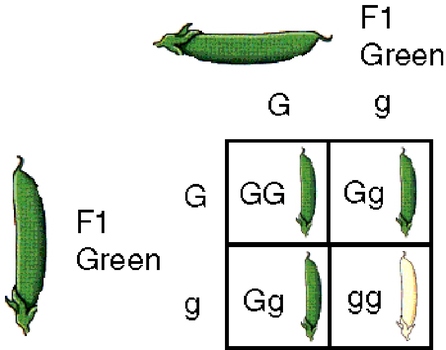|
Yesterday, Nature published a News Feature, Should you edit your children's genes? The TL;DR: "In the fierce debate about CRISPR gene editing, it's time to give patients a voice."
The post began with a story about a young girl with albinism, which causes her to be legally blind. Yet, by practicing relentlessly, she's gone from the worst to the best player on her youth basketball team.
When asked if she wishes her parents had corrected the gene responsible for her condition before she was born, "Ruthie didn’t hesitate before answering — no. Would she ever consider editing the genes of her own future children to help them to see? Again, Ruthie didn’t blink — no." Ruthie's parents noted that, had they known about the genetic abnormalities before she was born, they would have edited them out in a heartbeat. But now, they're not so sure. "Changing her disability, he suspects, 'would have made us and her different in a way that we would have regretted', he says. 'That’s scary.'” Before I dive into my reaction to the Nature piece (which I suspect will require its own post), I just want to clarify something: Genome editing is faster, easier and more precise than ever, thanks to UC Berkeley researchers Jennifer Doudna and Emanuelle Charpentier, who discovered CRISPR-Cas9 genome editing. Learn more about the science in this amazing Radiolab:
Yes, genome editing is easier than ever. But. THERE IS ABSOLUTELY NO REASON TO PANIC! We are not anywhere close to Gattaca (you know -- that 1997 movie about a future in which every embryo is edited to be perfect?) for the following reasons:
Reason we are nowhere close to Gattaca #1: Currently, there are several barriers to using CRISPR in humans -- mainly technical and legal. Among them: off-target cutting. Cas-9 can cut imperfectly. It can tolerate mismatches. We are already working on several solutions to this. For example:
CRISPR technology is revolutionary and awesome... but you would have to be crazy to use CRISPR to edit an embryo today. Reason we are nowhere close to Gattaca #2: Right now, there is no real medical need for CRISPR in humans. There are much safer ways for parents to make sure their babies don't carry genetic diseases, including:
You remember Mendel, right?
The only real use for CRISPR, then, would be IF you carried a DOMINANT gene for a genetic disease AND you were homozygous for it. (Remember: genes can be dominant or recessive. If you carry a recessive gene, such as the one for cystic fibrosis, you will only express the disease if you are homozygous for it -- meaning you inherited the gene from both your mom and your dad. If you carry a dominant gene, such as the one for Huntington's disease, you will express the disease no matter what.) In that case, getting pregnant the old-fashioned way would confer a 100% chance of the baby having the disease, and IVF wouldn't work because all of your gametes would carry the dominant gene for the disease. But here's the thing: that rarely happens. People are very rarely homozygous for a dominant disease. Reason we are nowhere close to Gattaca #3: Although the amazing future scientists of Gattaca have figured out how to make "designer" babies that are beautiful, athletic, disease-free and smart... in reality, we have no idea how to do that. Genes are much, much more complicated than that. We know how to make people stupid, short or uncoordinated, but I'm guessing there's a pretty low demand for that. We know that, for a small number of diseases, cutting a specific gene could eliminate the disease entirely. But even then as per the Nature article, Even Huntington’s, which is fairly well characterized, is no easy target. The glitch that causes it is a repeat of a particular genetic sequence; the more repeats, the more severe the symptoms, and repeats are added with each successive generation. New families are diagnosed with Huntington’s all the time, either because the disease is misdiagnosed in older generations or because symptoms worsen, and become recognizable, in subsequent generations.
Moreover, we have little understanding of what genes cause ugliness. We know that certain genes may be associated with fast- vs. slow-twitch muscle growth, but we don't know how to make a fetal basketball star. We know that smart parents tend to have smart children... but we have no idea which genes are responsible for that, or even how much is nature vs. nurture.
Could we "enhance" our babies if we understood the genetics of beauty, intelligence and athleticism (or even musical or artistic ability)? Sure, maybe. But we don't, so it's a nonissue. (Besides -- achievement isn't normal. It's log-normal. So even if you give your child the "Tall" or "Fast" or "Smart" gene, that doesn't guarantee their success.) *** So what is the scary part of CRISPR-Cas9? Is there one? Yes, according to Stanford Professor Hank Greely, who is, among many things:
In a recent panel discussion organized by geneticist and CRISPR expert Justin Smith, Greely relayed that he is not concerned about "changing the human race" or germline. "There are 14.6 billion haploid human genomes," he stated, and they are constantly changing. During the growth of every single individual, mutations randomly accumulate in your somatic cells. "Not even identical twins are the same!" Greely continued. "My own left and right hands are different. My zygote wasn't the same as what my parents gave me." But what does scare him is the nonhuman research. Humans have Institutional Review Boards. They have malpractice suits and laws and regulatory bodies in place to protect them. But what about flies? Mosquitoes? Other animals? CRISPR kits are starting to pop up online. There is no shortage of lab manuals and resources to do CRISPR on your own. A kid with a BS in chemistry could go into his garage and permanently change a species, or the whole world... and we might never know. Does this mean I'm against CRISPR in animals? No. I strongly believe we should be using it to eradicate malaria, Zika, and other horrible, mosquito-borne diseases. We have the technology to do it. We have ecologists giving it the green light. We could test it first on a small island in the middle of the Pacific, where the edited mozzies can't spread to other populations. If something unexpected happens, we can simply release wild-types back into the population. But that's just my opinion. What do you think? *** To learn more about this, I highly recommend Regenesis: How Synthetic Biology Will Reinvent Nature and Ourselves, by George Church and Ed Regis.
0 Comments
Leave a Reply. |
About the Author

Eva is a content specialist with a passion for play, travel... and a little bit of girl power. Read more >
Want to support The Happy Talent? CLICK HERE!
Or Find me on Patreon!
What's Popular on The Happy Talent:
Trending in Dating and Relationships:
What's Popular in Science: Playfulness and Leisure Skills:
Popular in Psychology and Social Skills:
Categories
All
|




























 RSS Feed
RSS Feed